PanchMukhi Hanuman Idol On Natural Shaligram
Panchmukhi Hanuman Murti on Shaligram
₹ 0.00
Out of stock
CompareDescription
Description :
The origin of Sri Panchamukhi Hanuman can be traced to a story in Ramayana . During the war between Lord Rama and Ravana, Ravana took help of Ahiravana , the king of Pathala. Lord Hanuman in order to protect Lord Rama and Lakshman formed a fortress with his tail. Ahiravana took the form of Vibhishana the noble brother of Ravana and took Lord Ram and Lakshman to Pathala loka.Hanuman entered pathala loka in search of Rama and Lakshmana, He found that life of Ahiravana was hidden in the five lamps which were placed in different directions. He could be killed only by extinguishing all five lamps the same time. To accomplish this Hanuman had to take the form of Panchamukha Hanuman. This form of Hanuman has five faces. Hayagriva , Narasimha , Garuda and Varaha are the four other faces along with Hanuman’s face. Hanuman using the five faces in different directions blows air to extinguish the lamps there by killing Ahiravana.
According to Hanumath Prakaranam in Sri Vidyarnavatantram, Anjaneya has four faces (Pancha Mukha) and ten weapons. Hanuman is a great yogi (mystic) having transcended the five senses (Pancha Indriyas). In Kamba Ramayan (in Tamil), the significance of number five is beautifully narrated as follows: The son of one of the five elements (son of wind – Pavana Thanaya) crossed one of the five elements (water – the ocean), through one of the five elements (sky), met daughter of one of the five elements (daughter of earth – Sita Devi) burnt down Lanka by one of the five elements (fire). Sundara Kanda , highlights the heroic exploits of Lord Hanuman at Lanka.
By many, it is considered auspicious to go around the Hanuman idol 5 times, 14 times, 23 times, 32 times or with such numbers the digits of which add to five. The pancha mukha hanuman is rare idol of Hanuman. There are many legends and interpretations to this. One of the legend is that Lord Hanuman is said to have appeared before Raghavendra Swamy in a unique way amalgamating within him the avataras of “varaha, garuda, anjaneya, narasimha and hayagreeva”, thus five-headed.

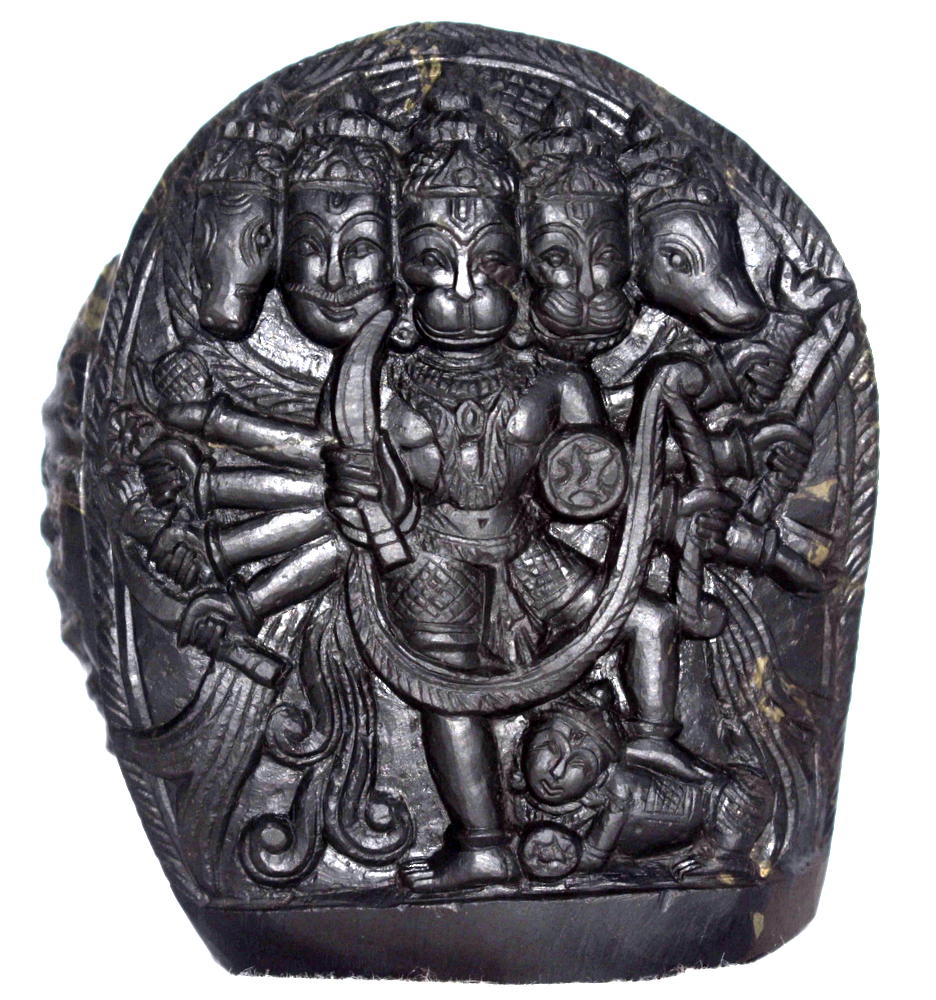

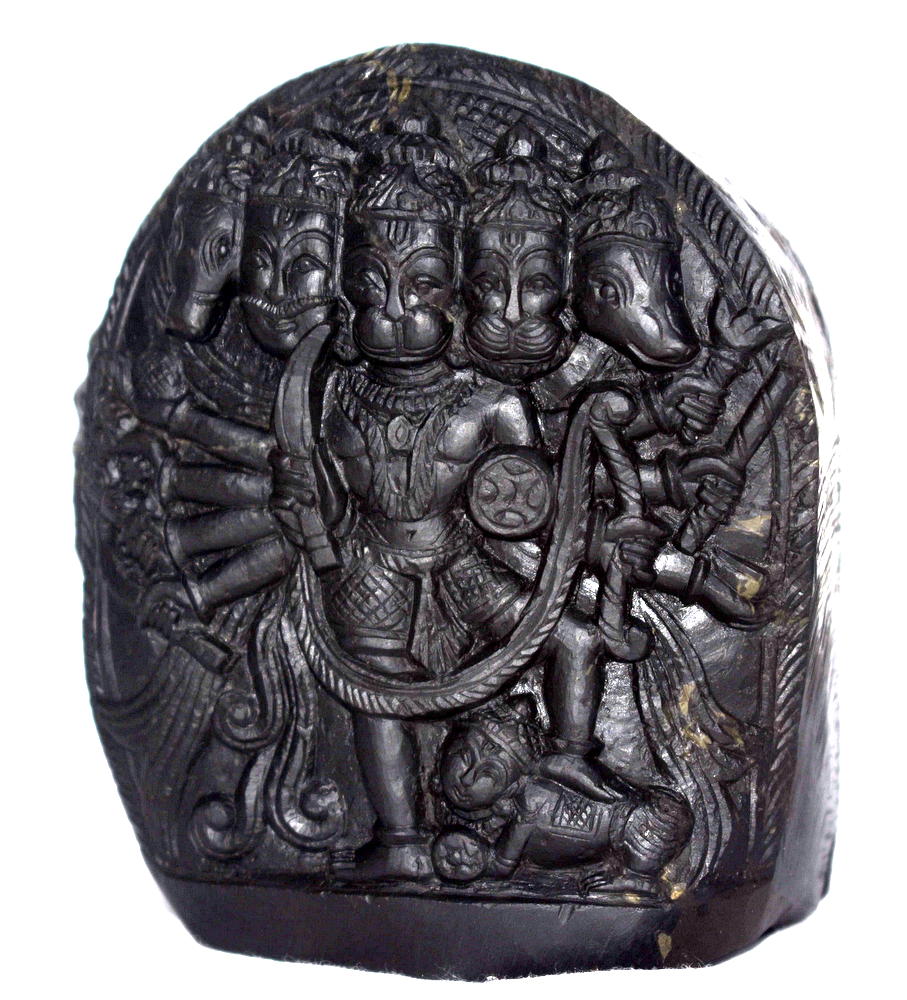
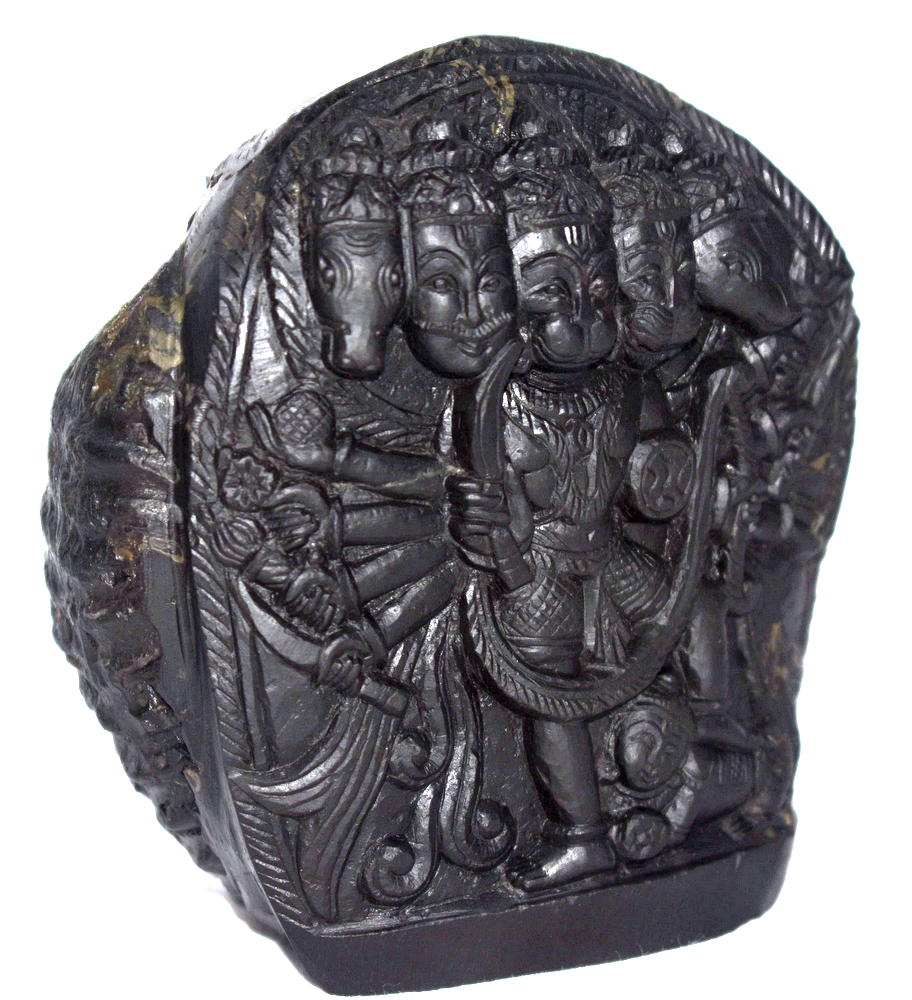

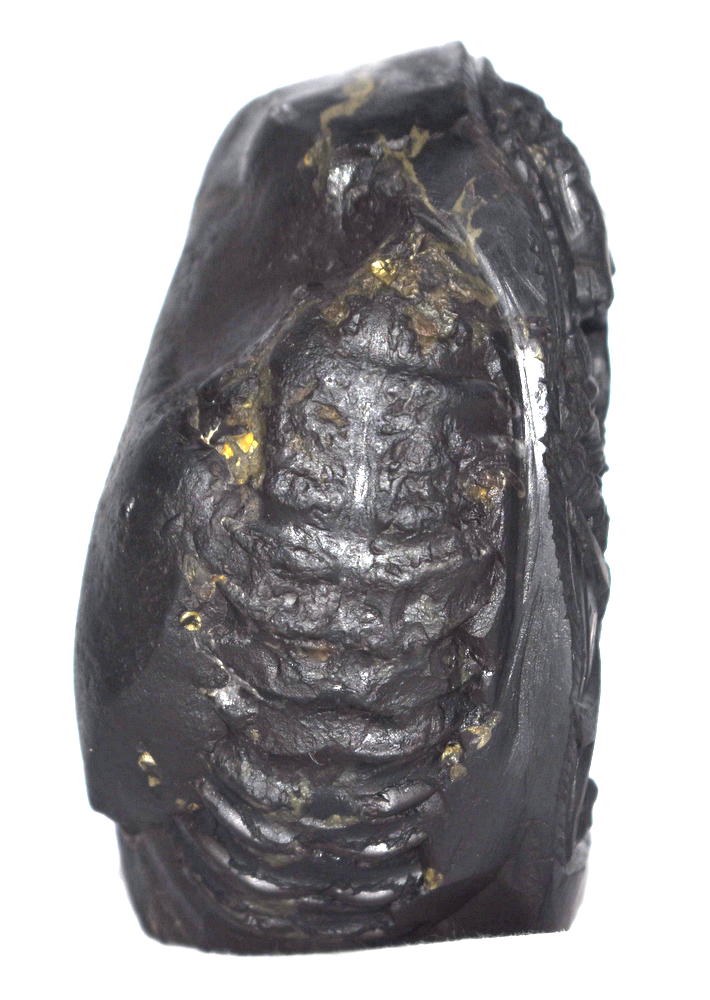

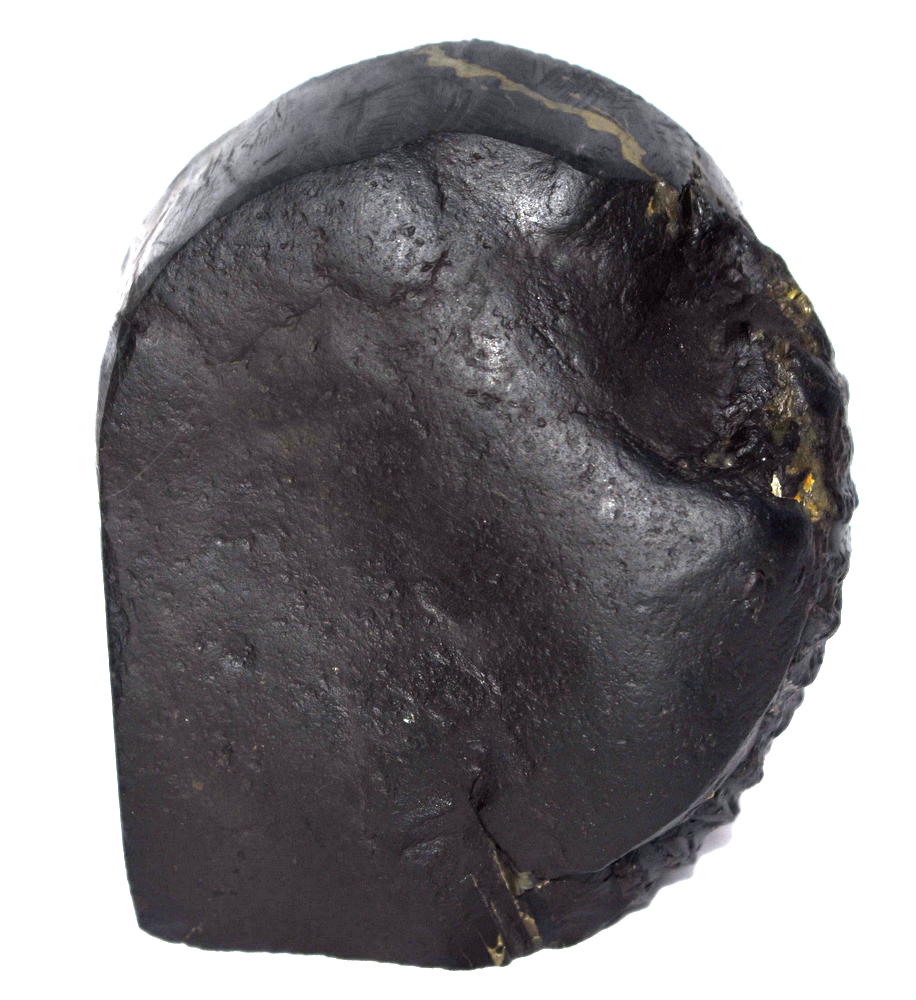
Reviews
There are no reviews yet.